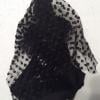Search the Community
Showing results for 'reactive hypo'.
Found 1,411 results
-
Hiya all, I'm new to here and just was wanting to make contact. I am insulin dependant diabetic with sever insulin resistance, I am 1 week away from rny surgery and on day 3 of the pre surgical prep. From what I have seen I don't really have much to moan about, as I am still able to eat actual food, but wondered..did anyone else have extreme cravings, headaches, insomnia, low mood, and agitation when doing the prep? Also did anyone feel just generally really unwell? It's only day 3 but it's kicking the hell out of me. I am able to have the following each day (which I know is more than most), but am worried that I am maybe eating a bit too much to shrink my liver, or that I am just getting it all wrong. The hospital have me the following diet: Breakfast - 1 weetabix Lunch- small portion of lean meat or fish, salad (no dressing), 2 crisp breads or a slice of bread Dinner- small portion of lean meat or fish, 3 small potatoes or 3 spoons of rice, vegetables 1/2 pint of skimmed milk per day (to be used in tea or coffee and my breakfast) A sugar free & fat free yoghurt No sauces no alcohol no fizzy drinks I had a hypo today I am currently 106kg, I weighed 122kg at the start of my journey 2 years ago. I have gone from a 44 inch trouser to a 34/36 inch. Am having the surgery for diabetes reasons not so much for weight loss. Thank you in advance for any replies xx Sent from my iPhone using the BariatricPal App
-


appetite suppressants - several years post op
Valentina replied to CowgirlJane's topic in Gastric Sleeve Surgery Forums
My friend, I would be concerned about adding a weight suppressant right now. Didn't you just recently start another new med? I think I would ask if THAT med might be revving up your appetite. It's weird how meds reactive so differently within individuals. Until you can find out about the med and its possibilities pertaining to you new appetite, I wouldn't be adding anything new. I'll always side on "changing the existing recipe" before "adding another ingredient". Decisions, decisions. Why do we always have to be making them? Prayers going up for you---and me. -
That is so wonderful that you have such great control of your diabetes. Are you a Type 1? I'm just curious because most diabetics (T2's) go into remission. That isn't to say that they still wouldn't have a reactive hypoglycemia happen if they ate just a carb with no protein follow up. I am T2 and still wearing my pump, however my numbers are behaving much better than they were prior to surgery. Actually, aside from the weight I gained from insulin use and not being able to drop it, and the horrible insulin resistance I have is why I had this surgery done. Keeping my fingers crossed that at some point the insulin will not be needed. I'm only 3 weeks out, and I've been diabetic for over 21 years, so it may take the weight loss to lower the insulin resistance. I'll be patient; I have no choice. But, much happier that I'm not pumping in tons of insulin with my numbers staying high anymore.
-


Kaiser Fremont- Dr. Hahn
audaciousmarie replied to audaciousmarie's topic in PRE-Operation Weight Loss Surgery Q&A
Hi @@Phoenix40! So last Thursday I went for my Nutrition/Surgeon/Coordinator appointment. I'll describe each appointment below: First you are weighed in and your height is taken Nutrition: The nutritionist is a very nice lady and she will ask you about what type of diet you have been on (I started following the 1200 calorie diet after orientation). You will have to describe what you usually eat for breakfast, lunch, dinner, Snacks,etc. She also talks about Vitamins and what type you will need post op (this will depend on if you get the sleeve or bypass) and what to expect as far as diet goes in the first weeks after surgery (i.e. liquids, soft foods, etc) She also informed me about the different types of Protein drinks and answered any questions I had. Surgeon: Dr. Hahn was very patient. He went over my BMI, co morbidities, medications, etc to ensure that I would be a good candidate for surgery. He said it would be my choice whether to go for sleeve or bypass as I would be great candidate for either (I don't have acid reflux). We talked about the differences between sleeve and bypass (right off the bat he discouraged from the lap band so we were in agreement about that). He reiterated that regain was possible with either surgery and so is dumping (so it really comes down to the patient being willing to put in the work to not only lose the weight but keep it off). He went into detail about possible complications withe each procedure (ulcers, reactive hypoglycemia, reflux, etc). He then set a weight loss goal for me. Normally they ask the patients to lose 10% of their body weight but Dr. Hahn only requires a 7-8%, of total body weight, loss. For me 7-8% was 19 pounds (I had already lost 9 pounds since orientation and he credited me so I needed to lose 10 pounds to get a surgery date and 5 pounds to get a psych appointment). The only other requirements Dr. Hahn set out for me, besides weight loss, is attending at least one support group, and an EKG (I already finished my bloodwork). Coordinator: She was very pleasant. She informed of what my next steps to surgery are (support group, psych appointment, etc) and that to be sure I call monthly to update them on my weight and progress. Before the psych appointment each patient must fill out a surgery quiz (located in Chapter 9 of the Bariatric binder) and send it in before the appointment. Overrall it was an interesting yet quick appointment. I was told to expect to be there for 3 hours but for me it was more like 2 hours. Sent from my SM-G925T using the BariatricPal App Thank you for posting this! Your timing was perfect! I was struggling with one of my bad habits when I saw this and it helped me get passed it. Hearing about the appointment made me excited for my next step and reminded me why I am doing this. You are very welcome! I can't wait to hear about your appointment. Always remember..you are not alone in this journey:) Sent from my SM-G925T using the BariatricPal App -


Kaiser Fremont- Dr. Hahn
Phoenix40 replied to audaciousmarie's topic in PRE-Operation Weight Loss Surgery Q&A
Hi @@audaciousmarie! Hi @@Phoenix40! So last Thursday I went for my Nutrition/Surgeon/Coordinator appointment. I'll describe each appointment below: First you are weighed in and your height is taken Nutrition: The nutritionist is a very nice lady and she will ask you about what type of diet you have been on (I started following the 1200 calorie diet after orientation). You will have to describe what you usually eat for breakfast, lunch, dinner, Snacks,etc. She also talks about Vitamins and what type you will need post op (this will depend on if you get the sleeve or bypass) and what to expect as far as diet goes in the first weeks after surgery (i.e. liquids, soft foods, etc) She also informed me about the different types of Protein drinks and answered any questions I had. Surgeon: Dr. Hahn was very patient. He went over my BMI, co morbidities, medications, etc to ensure that I would be a good candidate for surgery. He said it would be my choice whether to go for sleeve or bypass as I would be great candidate for either (I don't have acid reflux). We talked about the differences between sleeve and bypass (right off the bat he discouraged from the lap band so we were in agreement about that). He reiterated that regain was possible with either surgery and so is dumping (so it really comes down to the patient being willing to put in the work to not only lose the weight but keep it off). He went into detail about possible complications withe each procedure (ulcers, reactive hypoglycemia, reflux, etc). He then set a weight loss goal for me. Normally they ask the patients to lose 10% of their body weight but Dr. Hahn only requires a 7-8%, of total body weight, loss. For me 7-8% was 19 pounds (I had already lost 9 pounds since orientation and he credited me so I needed to lose 10 pounds to get a surgery date and 5 pounds to get a psych appointment). The only other requirements Dr. Hahn set out for me, besides weight loss, is attending at least one support group, and an EKG (I already finished my bloodwork). Coordinator: She was very pleasant. She informed of what my next steps to surgery are (support group, psych appointment, etc) and that to be sure I call monthly to update them on my weight and progress. Before the psych appointment each patient must fill out a surgery quiz (located in Chapter 9 of the Bariatric binder) and send it in before the appointment. Overrall it was an interesting yet quick appointment. I was told to expect to be there for 3 hours but for me it was more like 2 hours. Sent from my SM-G925T using the BariatricPal App Thank you for posting this! Your timing was perfect! I was struggling with one of my bad habits when I saw this and it helped me get passed it. Hearing about the appointment made me excited for my next step and reminded me why I am doing this. -


Kaiser Fremont- Dr. Hahn
audaciousmarie replied to audaciousmarie's topic in PRE-Operation Weight Loss Surgery Q&A
Hi @@Phoenix40! So last Thursday I went for my Nutrition/Surgeon/Coordinator appointment. I'll describe each appointment below: First you are weighed in and your height is taken Nutrition: The nutritionist is a very nice lady and she will ask you about what type of diet you have been on (I started following the 1200 calorie diet after orientation). You will have to describe what you usually eat for Breakfast, lunch, dinner, Snacks,etc. She also talks about Vitamins and what type you will need post op (this will depend on if you get the sleeve or bypass) and what to expect as far as diet goes in the first weeks after surgery (i.e. liquids, soft foods, etc) She also informed me about the different types of Protein drinks and answered any questions I had. Surgeon: Dr. Hahn was very patient. He went over my BMI, co morbidities, medications, etc to ensure that I would be a good candidate for surgery. He said it would be my choice whether to go for sleeve or bypass as I would be great candidate for either (I don't have acid reflux). We talked about the differences between sleeve and bypass (right off the bat he discouraged from the lap band so we were in agreement about that). He reiterated that regain was possible with either surgery and so is dumping (so it really comes down to the patient being willing to put in the work to not only lose the weight but keep it off). He went into detail about possible complications withe each procedure (ulcers, reactive hypoglycemia, reflux, etc). He then set a weight loss goal for me. Normally they ask the patients to lose 10% of their body weight but Dr. Hahn only requires a 7-8%, of total body weight, loss. For me 7-8% was 19 pounds (I had already lost 9 pounds since orientation and he credited me so I needed to lose 10 pounds to get a surgery date and 5 pounds to get a psych appointment). The only other requirements Dr. Hahn set out for me, besides weight loss, is attending at least one support group, and an EKG (I already finished my bloodwork). Coordinator: She was very pleasant. She informed of what my next steps to surgery are (support group, psych appointment, etc) and that to be sure I call monthly to update them on my weight and progress. Before the psych appointment each patient must fill out a surgery quiz (located in Chapter 9 of the Bariatric binder) and send it in before the appointment. Overrall it was an interesting yet quick appointment. I was told to expect to be there for 3 hours but for me it was more like 2 hours. Sent from my SM-G925T using the BariatricPal App -
So I am one of the unlucky ones who gets reactive hypoglycemia. It is not fun and I am still trying to figure out the combination of foods that cause if for me. I have had it happen about 12 times since surgery 20 months ago. When it comes on, you don't even realize it is happening until it is almost too late. I suddenly don't feel right, I start shaking and I crash very fast. It takes a lot to get my sugars back to normal. I was a very controlled diabetic before surgery. I will usually have a Protein shake for break fast but occasionally I like a small bowl of cream of wheat. On the days I have that cream of wheat I have to be very careful eating some protein within an hour of the cream of wheat. If I don't do that I am almost guaranteed a episode. Once you have an episode it is very difficult to get control of it without eating more carbs all day long so the trick is never getting there in the first place. I had an episode last week and looking back at why, I know my carbs were higher than normal and my body simply does not like that. It is a very scary condition and if it gets too severe and you don't figure out what causes it, the only cure is having your bypass reversed which is absolutely not a solution for me. So, I have to be diligent about eating right and checking your sugar the minute you feel weird. Last week when I felt it I tested my sugar and I was at 43. Scary! I hope you figure out what might be causing your situation. Make sure you get to the bottom of it so you don't break your face!
-
The following are some of the common abbreviations used on this message board: ACL = Anterior cruciate ligament AMRAP = As Many Rounds As Possible (crossfit) BB = belly button bc = because BCBS = Blue Cross/Blue Shield BED = Binge Eating Disorder bf = best friend BM = bowel movement BMI = Body Mass Index bp = blood pressure BPD = Borderline Personality Disorder or Biliopancreatic Diversion (Scopinaro procedure) bs = blood sugar btw = by the way CBT = cognitive-behavioral therapy CC = common channel c diff = clostridium difficile cos or cuz = because CPAP = continuous positive airway pressure CRNP = certified registered nurse practitioners cw = current weight CXR = Chest X-Ray Dr. = doctor DS = Dumping Syndrome or Duodenal Switch EGD = Esophagogastroduodenoscopy EKG = Electrocardiography ff = fat free GERD = gastroesophageal reflux disease GI = gastrointestinal GNC = General Nutrition Corporation store GP = general practitioner or family doctor HBP = high blood pressure hr = heart rate hw = highest weight ICU = Intensive Care Unit Idk = I don’t know IMHO = in my humble (honest) opinion IMO = in my opinion IUI = Intrauterine insemination LAP Band = Laparoscopic Adjustable Gastric Band lol = laughing out loud LSG = Laparoscopic Sleeve Gastrectomy med = medicine msg = message NASH = Nonalcoholic steatohepatitis nf = non fat NG = Nasogastric NP = nurse practitioner NSAIDS = Non-steroidal anti-inflammatory drug NSV = non-scale victory (“scale” means “weight scale”) NUT = nutritionist OA = Overeaters Anonymous Onederland = a magical place or destination for those trying to lose weight. It might correspond to attaining a weight in the hundreds or losing a hundred pounds. op = operation OSA = Obstructive sleep Apnea Oz = Australia PB = Productive Burps PCOS = Polycystic Ovary Syndrome PCP = Primary Care Physician PM = private message (email) PMS = premenstrual syndrome POSE = Primary Obesity Surgery Endolumenal postop or post–op = post-operation or post-surgery PPI = Proton Pump Inhibitors ppl = people preop or pre-op = pre-operation or pre-surgery PTSD = Post-Traumatic Stress Disorder PVC = Premature ventricular contractions RA = Rheumatoid arthritis RH = reactive hypoglycemia RN = registered nurse RNY = Roux-en-Y RTD = ready to drink SADI-S = single anastomosis duodeno–ileal bypass with sleeve gastrectomy s/f or sf = sugar free SIPS = stomach intestinal pylorus-sparing surgery smh = shaking my head, scratching my head SO = significant other SOB = shortness of breath sw = weight at surgery tmi = too much information TPN = total parenteral nutrition TT = tummy tuck TTC = trying to conceive u = You UGI = Upper Gastrointestinal VSG = Vertical Sleeve Gastrectomy Vit = Vitamin wks = weeks WLS = Weight Loss Surgery WOD = Workout of the Day w/o = without wt = weight : ) or :-) = = smiley face : ( or :-( = = sad face
-
Typically with reactive hypoglycemia, or even hypoglycemia for that matter, you would feel very shaky, racing heartbeat, you may be sweaty, and nauseous all before passing out. Typically you do not just faint. That could be blood pressure. But also I would think you would feel dizzy or lightheaded from low blood pressure. I hope whatever is going on you find out what is going on and it is dealt with.
-


Reactive Hypoglycemia?
James Marusek replied to axlr8n's topic in General Weight Loss Surgery Discussions
Here is a short article on reactive hypoglycemia (RH) after gastric bypass surgery. https://www.ridgeviewmedical.org/services/bariatric-weight-loss/enewsletter-articles/reactive-hypoglycemia-postgastric-bypass/ The individual that I know who had this problem did not have diabetes prior to surgery. I believe the first time he encountered the condition he fainted. But ever since then he learned to detect the signs and took immediate steps to preclude the onset. So after the first incident, he never repeated it. It seems that RH occurs between 1 1/2 to 3 hours after a meal. Since you woke up at 3 A.M. this might not be RH. Since your blood sugar when you had it check the next day was 60, that is on the low side. So the condition might be related to low blood sugar (hypoglycemia) or something else. Another possibility is orthostatic or postural hypotension. Here is a link to that condition. http://www.merckmanuals.com/home/heart-and-blood-vessel-disorders/symptoms-of-heart-and-blood-vessel-disorders/dizziness-or-light-headedness-when-standing-up This is one of those problems that you will need to discuss with your medical professionals. -


Reactive Hypoglycemia?
VSGAnn2014 replied to axlr8n's topic in General Weight Loss Surgery Discussions
I know only what I've read -- this condition afflicts some RNY patients (as I recall, it was in the double digit percent of patients) and also to some but fewer sleeved patients (single digit percent). I don't recall the numbers - sorry. As I recall, when it appears, it seems to be a major pain in the ass and is addressed to some extent by eating certain food combinations throughout the day -- not at the "grazing" level, but just strategic snacking. I've read several research studies on this condition. Here are a couple I remember finding earlier: http://www.ncbi.nlm.nih.gov/pmc/articles/PMC3190577/ http://spectrum.diabetesjournals.org/content/25/4/217.full That's all I got. P.S. Of course, this may NOT be reactive hypoglycemia, but something else, including some kind of bug. But I knowyou'll let an M.D. diagnose what's going on with you. Best wishes. -
So, last night I was tired and went to bed early. I woke up about 3am to use the restroom and passed out while standing at the toilet... Bashed my face into the throne and then passed out again a couple minutes later while washing my hands. I was still feeling off this morning and went to the ER. I had eaten a fiber one protein bar and Greek yogurt before deciding to go in. They ran a few tests and have me fluids... My blood sugar was only 60 even after eating. I've never passed out or had problems with low blood sugar before. I had steak and baked potato for dinner and a pear for a snack before heading off to bed. Could the sugar in the pear have sent me into a hypoglycemic crash? Anyone have any experience with this 8 months after RNY surgery? From what I've read this seems like a problem people run into later after surgery (18-24 months) and usually from eating sugary foods.
-
Quick update. I think it was caffeine. Had been increasing my coffee consumption without realizing it. I cut back to one a day and they decreased significantly. I also cut back on the amount of whey I was consuming at once to 30g or less. Thanks all for the reply. I had them checked and they are benign. I also have reactive hypoglycemia so this could also contribute. Sent from my iPad using the BariatricPal App
-
I haven't experienced this, but it might be caused by blood sugar levels changing too much after eating. Reactive hypoglycemia I think it's called. You can feel poorly physically but I'd imagine it would also make you feel bad emotionally as well if it's happening frequently. Might want to get your hormone and other blood levels checked to make sure there's not a physical/chemical reason for the sadness.
-
Thanks James...I am a Type 2 diabetic and know all about hypoglycemia. Used to have reactive hypoglycemia prior to turning full blown diabetic, so I know the signs. I actually did check my blood sugar this morning (I do every morning anyway). It was fine, so that wasn't it. I really do think it had to do with the Protein. I didn't think I hit my protein the day before, and most everything I read said protein and fluids are usual culprits. Thanks for replies. Feeling better now.
-
Some people experience reactive hypoglycemia after RNY gastric bypass surgery. This is irrespective of whether they had diabetes prior to surgery or not. Here is a link for symptoms. http://www.mayoclinic.org/diseases-conditions/diabetes/expert-answers/reactive-hypoglycemia/faq-20057778
-


Sleeve 4/27- preop diet concern
dunnadunna replied to dunnadunna's topic in PRE-Operation Weight Loss Surgery Q&A
They only gave me like 5 Protein shake options for preop and asked me to stick to those. Premier is reserved for post op for some reason. Of those preop shake options, two of them contain way too much actual sugar (I have reactive hypoglycemia) and caused me to have dumping syndrome. I have broth once a day at most because the shakes are pretty filling, and I don't so any sf Popsicles or Jello because I hate artificial sweetener and there's enough of that in the shakes as well. I haven't looked into the sodium in the shakes, though. I was thinking that once my Atkins supply runs out in two days, I'll make my own for the last 5 days and just use the muscle milk powder I already have. I can put lemon in my water. I'll try that. Maybe I just have an oversensitive system lol. Sent from my iPhone using the BariatricPal App Have you done yours? What did you use? Sent from my iPhone using the BariatricPal App -
I have a bmi of 44 right now. I'm getting the sleeve done, mainly because I have reactive hypoglycemia... I suffer dumping syndrome frequently if I'm not minding what I eat, anyway, and the doc worried that it would be too hard on me to get RnY. Sleeve it is. Sent from my iPhone using the BariatricPal App
-
@@sbdooly73 When I was Hyper thyroid last year, my surgeon told me that it was too dangerous for me to be operated on, due to the thyroid storm possibility. I worked with his team Endo ever since then (July 2015) He told me to come back once my thyroid stabilised. When I saw him in January 2016, I was severe Hypo then, and he wanted to wait longer, as hypo thyroid that is not stabilised can make the recovery from WLS lot harder. After 2 months of Thyroxine meds (Levo thyroxine), My labs were finally good, stable, Hallelujah !!! So, was finally operated on March 8th 2016 I can't see a reason why you may be denied surgery, unless your blood tests show big differences in your levels. Are you on thyroid medication? OK, just saw your reply re thyroid med. I wonder if your med needs to be adjusted. I still have my now 6 weekly blood tests to monitor my levels Good luck!
-
I have Graves disease. I had my thyroid destroyed via Radioactive tx, been Hypo thyroid since Dec 2015. On Thyroxine since January 2016. My surgery had to be postponed when I was hyper thyroid. Since March 2016 (WLS) I lost total of 9 kg ( approx. 20 pounds), Seems slow loss, however I did hit the stall couple of weeks ago. It is normal though,to have stalls, even though they can be frustrating ..... I am interested in thyroid disease weight loss, also. I had couple of mini binges recently, emotional/head cravings, chocolate made me ill, so had some ice-cream and extra Proteins late at night. I only started gentle exercises 2 weeks ago.
-


I need to do this, no matter what
Micoxv replied to Micoxv's topic in Tell Your Weight Loss Surgery Story
Good on you for walking out. She's a f**king idiot -- uninformed and passing along wrong information to people who need good info. Jeez! Yes. I also forgot to mention that she made me climb on a machine supposed to calculate my muscle mass, fat, water and bones weight. It seems that I have around 90 pounds of muscle. Then I was trying to explain that it is physically not possible for me to have the same Protein intake (the famous 60-70 grams a day) as for a woman of 160 pounds that would have 60 pounds of lean muscle. Any fitness instructor, website or magazine would also customized to protein intake in function of the activity and goals. Giving the same recommendation for everybody is just dumb. Anyway, I am looking for a different NUT, but not easy to find one that is experienced with VSG patients. I've seen another one that wanted to put me on a regular hypo caloric diet...of 1200 Cals a day when I am barely reaching 900 a day. I guess I need to contact other clinics / surgeons that are used to VSG to get names of the NUT they work with. I'd it does not work, I will stick to the program I found on the web (Ottawa hospital) which is very detailed. For anybody can recommend me a website or program, it would be great. -


How to break a long stall?
RickM replied to Packerfan61964's topic in POST-Operation Weight Loss Surgery Q&A
You've made great progress to lose that much in 8 months, but now you are in maintenance rather than a stall. To get things moving again you probably need to drop your intake by 500 calories or so per day to get things moving again, and probably somewhat more than that to take it all the way to your goal (your current stability/maintenance point will drop somewhat as you lose - takes less energy to move 180 lb around than 240). Fiddling around with carbs or salt can help break a stall that is created by Water retention issues and may help cravings if those are your particular weak points, but won't overcome a lack of caloric deficit. Revising to an RNY might help you as you will be starting from scratch again with the stomach restriction and the malabsorption does tend to give a bit of an extra kick to the weightloss, tho that is a temporary effect that lasts a year or two and then you are back to a similar metabolic state as you are in now with the sleeve. That along with its tendency toward reactive hypoglycemia leading to inter-meal hunger often drives regain in bypass patients. Overall, the bypass is very similar in performance to the sleeve, though that temporary malabsorptive kicker might be enough to get you over the hump and into a lower stability point, though you do have to consider the cost of doing so (not just financial, but the different drawbacks and limitations that one gets by moving to the different WLS.) So, look carefully at what your diet is now and where you can make adjustments before leaping to a revision. Also, if you decide that you are stuck enough to consider revision to complete the job, you should also have the DS on your radar as a more powerful tool than either the sleeve or the bypass. It has a somewhat different set of tradeoffs (though not markedly different than the bypass,) but it should be looked into before a revision rather than discovering later that you need a second revision (have seen a couple band - bypass - DS revisions go through our support group in the past couple years.) Good luck on getting things back on track, -
I went from Hyper thyroid to Hypo thyroid now. Last year I was diagnosed with Graves disease, was severely Hyper thyroid. Yes, my WLS surgeon and his endocrinologist picked up on it. My WLS had to be put on hold. Had Radioactive Iodine last August 2015, went Hypo thyroid December 2015. On Thyroxine since January 2016. At least it is only one tiny tablet per day, versus 16-20 I had to take daily, when I was Hyper thyroid! Both Hyper and Hypo suck! I am also concerned re: slower weight loss now. I am 24 days post op, so too early to see re my weight loss. I know, it is no good to compare myself with other people. I am glad that I can connect with other Thyroid members
-


Balance after RNY
James Marusek replied to snickysnack78's topic in POST-Operation Weight Loss Surgery Q&A
A search of the internet shows that others reported problems with balance after RNY surgery. There are probably several potential causes. For example a Vitamin B12 deficiency can cause dizziness. Some people experience reactive hypoglycemia after surgery and this can lead to dizziness. Also if you were diabetic prior to surgery and are still taking some blood sugar medicines, your dosage may need to be adjusted. Normally at the 1 year mark they have you undergo blood work. This allows them to fine tweak your Vitamins. Make sure when the time comes that you undergo this. Here is some discussion about this topic. http://www.bariatric-surgery-source.com/lightheaded-and-dizzy-after-gastric-bypass-surgery.html -
I have hypo thyroid as well. I'm 5 1/2 mos post op and have lost 92 pounds so far. 74 since being sleeved. Still have 50 to go. I was surprised at my 2 month blood work that my T4 was actually high and my Doc had to decrease my meds.









